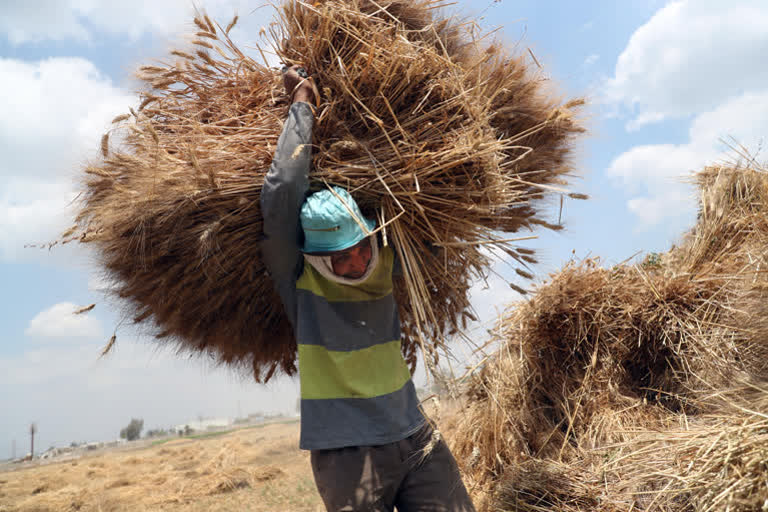New Delhi: The ensuing novel coronavirus COVID-19 pandemic and the subsequent nationwide lockdown and road closedowns has struck a body blow to Indian farmers growing ‘rabi’ vegetables, fruits, flowers and milk from which they will take a long time to recover.
While the yields of most of these ‘rabi’ crops and products were expected to hit bumper levels this year, the lockdown and the disruption of the supply chain has spelt disaster for the farmers of these perishable commodities.
Leading expert on agriculture and food policy, Devinder Sharma, told ETV Bharat: “The ‘rabi’ harvest season has already begun for many crops and vegetables while it is expected to begin in a few days for wheat. While wheat is expected to be picked up by the government procurement agencies, there is no effective implementable Minimum Support Price (MSP) mechanism for all these vegetables, fruits and flowers.”
With no one to pick up their produce, all access to the markets blocked and labour scarcity issues, the perishable crops are rotting.
“No wonder strawberries are being fed to cattle and milk is thrown out on the streets. This is a huge blow that farmers will find very difficult to recover from,” said Sharma underling the need for government intervention in the form of adequate direct cash benefits.
Read: India faces greatest economic emergency since independence: Raghuram Rajan
The situation is unprecedented because in earlier situations such problems would exist only for a crop or two. “This time it is for the entire range of crops and across the length and breadth of the country,” Sharma added.
Among the vegetables and fruits, the most affected are ‘ghia’ (gourd), ‘mulee’ (radish), peas, cabbages, fruits like strawberry, orange, kinnow, etc.
About 23 crops have a MSP mechanism but due to a slew of factors, the mechanism which involves government lift-offs is effective only for wheat and rice. Most of the produce of the other crops are sold in the open market which is exploitative in nature.
The agriculture economist says: “The salaried get their monthly salaries, but farmers have no assured income. Their sole means of livelihood is the sale of their produce and that mechanism is what has been devastated this time.”
Read: 'India got enough food stocks for even a 6-month lockout due to COVID-19'
The lockdown has resulted in about 5,00,000 loaded trucks lying stranded across the country as roads and highways were closed down. While the government has ordered easing of inter-state permit restrictions and a priority passage to trucks carrying such goods and commodities, the problems lie at the ground level.
The enforcement agencies including the police are not properly sensitized to the situation and needs and that is becoming a major problem, Praveen Khandelwal, a trading community leader had recently told ETV Bharat.
India has recorded more than 4,000 COVID 2019 positive cases till now with the rate of increase significantly speeding up in the last four days. The 21-day lockdown began on March 24



